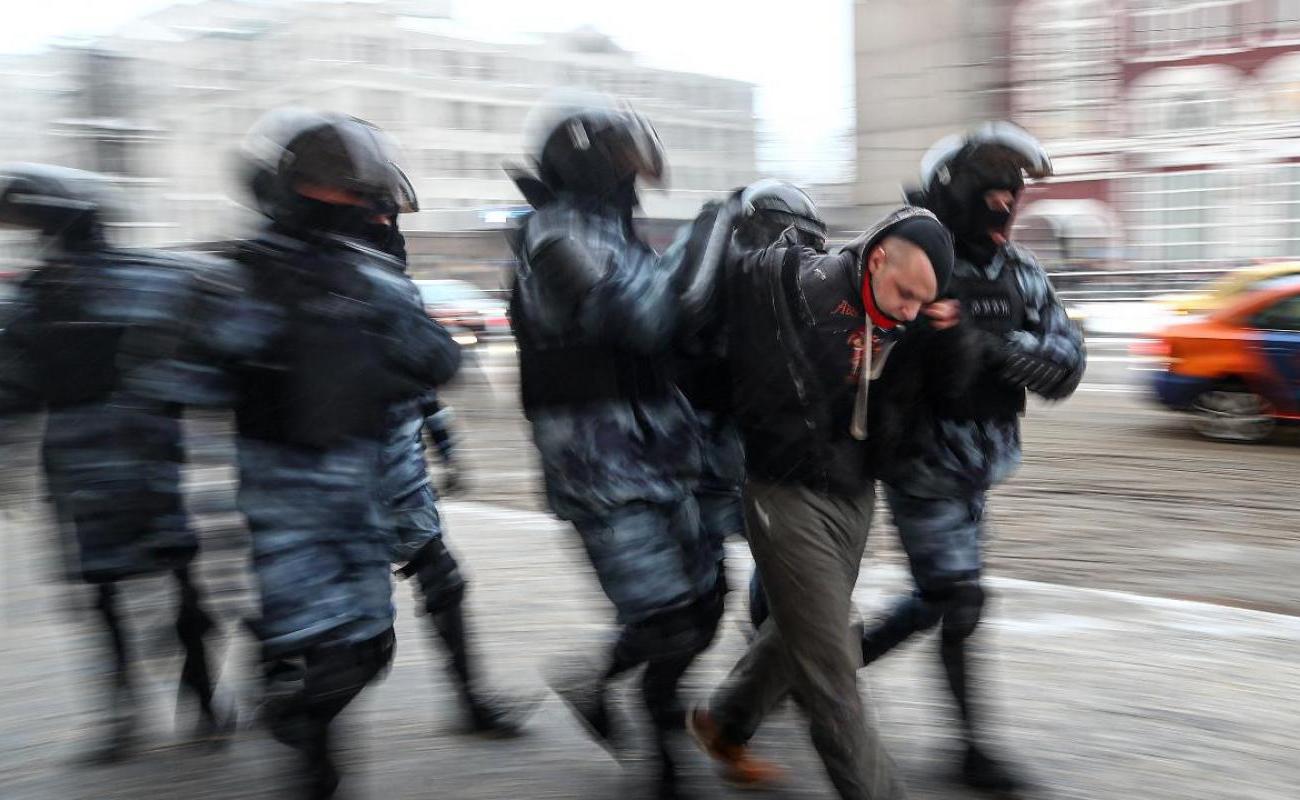Putin — Disagreement Is Terrorism

The FSB has now charged the Russian Anti-War Committee, a group of prominent emigres, with attempting “a violent seizure of power” — essentially of plotting a coup d’état — and of organizing a terrorist group. The FSB singled out the role of Mikhail Khodorkovsky, the exiled Russian oligarch.
By accusing the Anti-War Committee of terrorism, the FSB is effectively equating it with groups such as al-Qaeda and the Islamic State, and Khodorkovsky, who spent 10 years in jail for challenging Putin, with Osama Bin Laden, organizer of the 9/11 attacks.
It is a bold move on the Kremlin’s part. The supposed “terrorist cell” includes prominent and respected Russians in exile, among them Mikhail Kasyanov, former prime minister under Putin; Sergey Aleksashenko, former first deputy chairman of the Russian Central Bank; world chess champion Garry Kasparov; satirist Viktor Shenderovich; popular YouTube commentator Ekaterina Schulmann; and dissident the Vladimir Kara-Murza, who was released from a Russian penal colony last year in the largest prisoner swap between Russia and the West since the Cold War.
In a nutshell, the committee consists of representatives of the Russian elite, all of them very well known in the country, who have chosen to take a public stand against Putin. Their public pronouncements are mostly about the need for a new democratic structure, the illegitimacy of the present Kremlin regime, and the need for its downfall, but they have not advocated terrorism as it’s understood in democracies.
The FSB’s October 14 announcement was sanctioned at the very top: Putin’s spokesperson Dmitry Peskov explained it by saying that those individuals were “engaged in hostile activities, and our special services are taking the necessary measures.”
Peskov’s words have uncomfortable echoes of Stalin’s show trials of Trotskyists, whom he treated as his foremost political enemies. Trotsky and his followers were formidable political opponents who challenged Stalin’s power in Russia and abroad, and that was why Stalin and his intelligence services mercilessly hunted him, his family, and his supporters across the globe.
The Soviet campaign against Trotskyism was completely different from the KGB’s repression against dissidents in the late Soviet era; they were mostly accused of anti-Soviet activities, never of terrorism, and were never regarded as serious rivals to Politburo members.
The new announcement may have been triggered by the Parliamentary Assembly of the Council of Europe’s October 1 vote to launch a “platform for dialogue” with exiled Russian democratic forces — most of whom are members of the Anti-War Committee. (The Kremlin’s delegation was excluded from the Assembly in March 2022.)
There may be a temptation to dismiss this seemingly dry initiative as a helpless gesture from behind the new Iron Curtain, but for the Kremlin, this is a matter of some seriousness.
This year, the Kremlin has stepped up its efforts to make life harder for Russian political exiles by abusing mechanisms of international cooperation between law enforcement agencies. A significant number of Russian anti-war activists, writers, and journalists — including the authors of this article — have been placed on international wanted lists.
Immediately after the start of the full-scale invasion, Interpol made it clear it would not accept Russian requests for extradition on clear political charges, like spreading fake news about the war — charges the Kremlin had added to the Russian criminal code after February 2022. Many believed this would end the Kremlin’s attempts to detain Russian dissidents by using international legal mechanisms.
But after almost four years of war, the reality seems much more complicated. Since the start of the full-scale invasion, Moscow has been busy signing bilateral extradition agreements with more and more countries around the world, bypassing the Interpol system.
Since 2022, Russia’s General Prosecutor has signed agreements with counterparts in Algeria, Vietnam, Iraq, Iran, China, Mozambique, Myanmar, Nicaragua, Saudi Arabia, Tajikistan, Tanzania, Angola, Venezuela, Egypt, Cambodia, North Korea, Kyrgyzstan, Cuba, Laos, Morocco, Thailand, the Central African Republic, and Chile. The Moscow security services have also been experimenting with definitions of criminal charges under which they can seek the extradition of dissidents to Russia.
For instance, on October 9, Russian activist Lilia Manukhina was detained in Armenia at Russia’s request. The 29-year-old fled Russia after she and her friends posted anti-war leaflets on Moscow buildings. She was put on the wanted list on criminal charges of “theft of weapons by a group using violence”, which has no obvious political echoes. Armenian authorities are currently reviewing her case.
The Kremlin’s strategy suggests that, from now on, the members of the Committee should think very carefully about their travel plans because an increasing number of countries would be willing to detain and transport them to Russia. The charges against the Anti-War Committee are a clear sign that its members are now on the Russian intelligence services’ blacklist — and are being actively targeted.
